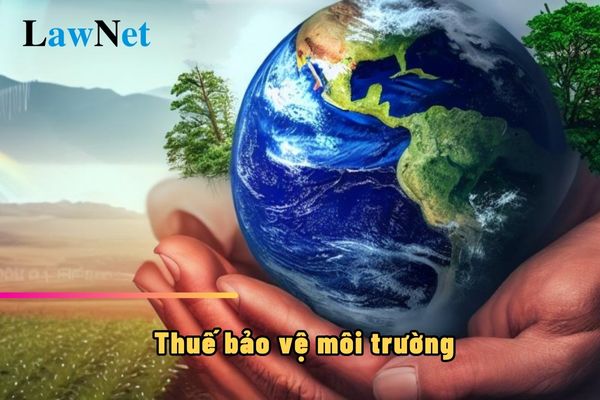Is the gas used for air conditioning subject to environmental protection tax in Vietnam?
Is the gas used for air conditioning subject to environmental protection tax in Vietnam?
Under the provisions of Article 3 of the Law on Environmental Protection Tax 2010, the taxable objects are specifically regulated as follows:
Taxable objects
1. Gasoline, oil, grease, including:
a) Gasoline, except ethanol;
b) aircraft fuel;
c) diesel oil;
d) Petroleum;
e) Fuel oil;
f) lubricants;
g) Grease.
2. Coal, including:
a) Lignite;
b) Anthracite Coal (anthracite);
c) Fat coal;
d) Other coal.
3. Hydrogen-chlorofluorocarbon liquid (HCFC).
4. Taxable-plastic bag.
5. Herbicide which is restricted from use.
6. Pesticide which is restricted from use.
7. Forest product preservative which is restricted from use.
8. Warehouse disinfectant which is restricted from use.
9. When it is necessary to supplement other taxable objects as per period, the National Assembly Standing Committee shall consider and regulate.
The Government shall specify this Article.
Referring to Clause 2, Article 2 of Decree 67/2011/ND-CP, regulations are as follows:
Taxable objects
...
2. The Hydrogen-chlorofluorocarbon liquid (denoted as HCFC) specified in Clause 3, Article 3 of the Law on Environmental Protection Tax is the gas as solvent used in refrigeration equipment and in semiconductor industry.
Furthermore, Clause 3, Article 1 of Circular 152/2011/TT-BTC stipulates as follows:
Taxable objects
...
3. Hydrochlorofluorocarbon (HCFC) solution, meaning a group of the ozone layer-depleting substances used as refrigerant in cooling equipment and semi-conductor industry, which are domestically produced, imported separately or in imported refrigeration electric equipment.
Simultaneously, in Official Dispatch 14536/BTC-CST 2015, the environmental protection tax for HCFC solution is regulated as follows:
3. Hydrochlorofluorocarbon (HCFC) solution, meaning a group of the ozone layer-depleting substances used as refrigerant in cooling equipment and semi-conductor industry, which are domestically produced, imported separately or in imported refrigeration electric equipment.
Based on the aforementioned regulations, the hydro-chloro-fluoro-carbon (HCFC) solution falls under the taxable subjects of environmental protection tax. In case of mixed substances containing HCFC solution being imported or produced for sale, only the environmental protection tax on the amount of HCFC solution in the mixed substance is collected.
Thus, according to the above legal regulations, the gas (Hydro-chloro-fluoro-carbon (HCFC)) used for air conditioning is a refrigerant in refrigeration equipment and is subject to environmental protection tax.

Is the gas used for air conditioning subject to environmental protection tax? (Image from the Internet)
Are goods transited via the border gates of Vietnam subject to environmental protection tax?
According to the provisions of Article 2 of Circular 152/2011/TT-BTC, the non-taxable subjects are regulated as follows:
Objects not liable to tax
1. Goods not specified in Article 3 of the Law on Environmental Protection Tax and guided in Article 2 of Decree No. 67/2011/ND-CP and Article 1 of this Circular are not liable to environmental protection tax.
2. Goods specified in Article 3 of the Law on Environmental Protection Tax and guided in Article 2 of Decree No. 67/2011/ND-CP and Article 1 of this Circular arc not liable to tax in the following cases:
2.1. Goods transported from exporting countries to importing countries via Vietnamese border gates (transited or transported via border gates, including goods already brought into bonded warehouses) for which procedures for import into or export out of Vietnam are not carried out.
2.2. Goods transited via border gates or the border of Vietnam under agreements concluded between the Vietnamese Government and a foreign government or between agencies or representatives authorized by the Vietnamese Government and a foreign government under law.
2.3. Goods temporarily imported for re-export within the time limit specified by law.
2.4. Goods exported abroad directly by producers (including processors) or exporters as entrusted, unless organizations, households and individuals purchase goods subject to environmental protection tax for export.
Based on goods' customs dossiers, customs clearance offices shall determine goods not liable to environmental protection tax specified in this Clause.
According to the above provisions, goods transited via the border gates of Vietnam are not subject to environmental protection tax.
Will the environmental protection tax on imported goods which are still in warehouses be refunded in Vietnam?
Under the provisions of Article 8 of Circular 152/2011/TT-BTC, the tax refund is stipulated as follows:
Tax refund
Environmental protection taxpayers may have the paid environmental protection tax amount refunded in the following cases:
1. Imported goods which are still in warehouses or storing yards at border gates and under customs supervision and allowed to be re-exported abroad.
2. Goods imported for transfer and sale to foreign parties via Vietnam-based agents; petrol and oil sold to foreign firms' vehicles on routes via Vietnamese ports or to Vietnamese vehicles on international routes under law.
3. For goods temporarily imported for re-export by the mode of temporary import for re-export, the paid environmental protection tax amount shall be refunded for the quantity of re-exported goods.
4. For imported goods re-exported abroad by importers (including returned goods), the paid environmental protection tax amount shall be refunded for the quantity of re-exported goods.
5. For goods temporarily imported for display at fairs, exhibitions or product shows. the paid environmental protection tax amount shall be refunded for the quantity of re-exported goods.
Refund of environmental protection tax under this Article applies only to actually exported goods. Procedures, dossiers, order and competence for environmental protection tax refund for exported goods comply with regulations applicable to refund of import duty under the law on import duty and export duty.
Therefore, according to the above provisions, the environmental protection tax on imported goods which are still in warehouses will be refunded in Vietnam.

